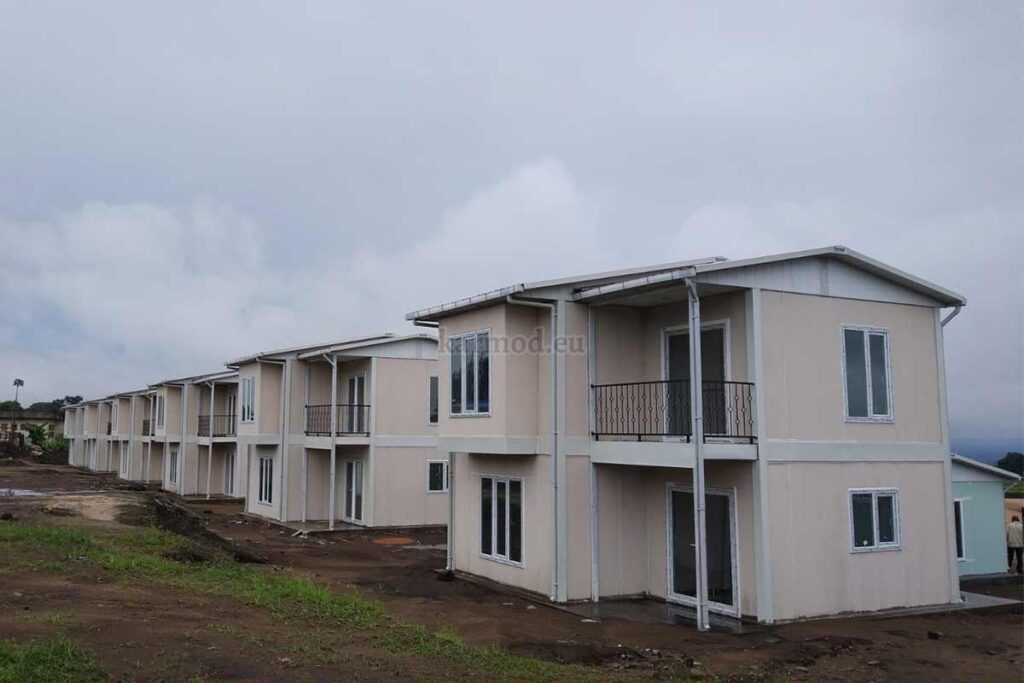
Factory Built Homes: Are They the Future of Housing?
In today’s rapidly changing world, factory built homes are gaining popularity as a modern solution for affordable and sustainable living. These homes, constructed in controlled factory settings, present numerous benefits that appeal to a wide audience including home enthusiasts. The appeal of factory built homes is not only in their affordability but also in their efficiency and adaptability.
The rise of factory built homes can be attributed to advancements in building technology and increased interest in environmentally friendly living options. As we explore the various aspects of these homes, we’ll understand why they might just be the future of housing in our communities.

What Are Factory Built Homes?
Factory built homes are residential buildings that are constructed off-site in a factory setting. Once complete, they’re transported to their intended location for assembly. This method includes various types like modular homes, manufactured homes, and mobile homes, each offering unique features and benefits.
Types of Factory Built Homes
- Modular Homes: These are prefabricated sections that are put together on-site, creating a unified living space.
- Manufactured Homes: Unlike modular homes, these are constructed on a permanent chassis and conform to federal building codes.
- Mobile Homes: Similar to manufactured homes but built before 1976 under a less stringent code.
The Advantages of Factory Built Homes
One of the most significant advantages of factory built homes is their cost-effectiveness. They are generally more affordable than traditional homes due to efficient building processes and lower labor costs. Furthermore, the controlled factory environment minimizes waste and ensures high-quality construction standards. According to a relevant source on the advantages of modular housing, the benefits of modular housing are undeniable.
Eco-Friendly Benefits
Another highlight is the sustainability of factory built homes. These homes often incorporate eco-friendly materials and technologies such as solar panels and energy-efficient insulation, reducing their environmental footprint. In today’s climate-focused world, this is a major draw for many potential homeowners.
Speed of Construction
The speed at which these homes can be constructed is another major advantage. Since they are built in a factory setting, weather delays are minimized, allowing for faster completion. This efficiency is ideal for those looking to move into their new home quickly.
Addressing Common Misconceptions
Despite the many advantages, some misconceptions surround factory built homes. Many people mistakenly believe these homes are devoid of aesthetic and customization options. In reality, there are ample choices in design, interiors, and fixtures, allowing homeowners to personalize their homes extensively.
Quality Concerns
A common concern is the quality of construction. However, because factory built homes are subject to state and federal regulations, they often meet or exceed the quality of traditional homes. The construction process involves regular inspections to ensure compliance with safety and durability standards.
The Future Impact of Factory Built Homes
As urban areas continue to expand, the demand for housing will inevitably increase. Factory built homes can play a vital role in addressing the housing shortage by providing affordable, efficient, and sustainable housing solutions. They offer a viable option for both first-time home buyers and those looking to downsize or invest in a secondary property.
Customization and Innovation
The growing ability to customize modular sections is fostering innovation within the factory built homes industry. With advancements in technology, we can expect even more diversity in home design and features, making these homes increasingly appealing to a broad audience.
External Considerations for Home Enthusiasts
For home enthusiasts interested in eco-friendly landscaping, learning about efficient water use can complement the sustainability of their factory built homes. You may explore how to program an irrigation system to reduce water waste, ensuring that your garden is as sustainable as the rest of your home. For more details, check out how-to program irrigation.
Is a Factory Built Home Right for You?
Choosing a factory built home depends on various factors such as budget, location, and personal preferences. However, the benefits they offer make them a compelling choice for many. As the perception of these homes continues to improve, more people are likely to consider them as a viable housing option.

FAQ Section
Are Factory Built Homes Durable?
Yes, factory built homes are designed to be highly durable. They’re constructed under strict quality controls and comply with safety and building regulations, ensuring longevity.
Can I Customize My Factory Built Home?
Absolutely! Factory built homes offer numerous customization options, allowing you to personalize everything from the floor plan to interior finishes according to your preferences.
Are Factory Built Homes Environmentally Friendly?
Yes, these homes are often more environmentally friendly than traditional ones. Their construction process produces less waste, and they frequently include sustainable features like energy-efficient appliances and materials.
This article contains affiliate links. We may earn a commission at no extra cost to you.